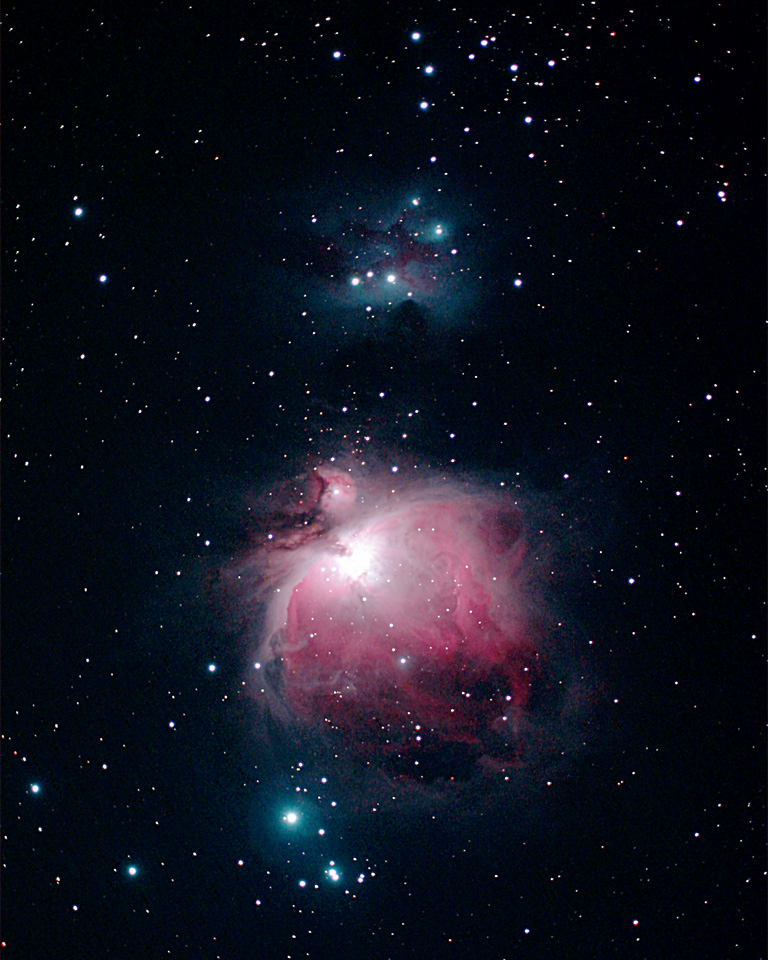| NOTES |
DATE:
|
Thursday, January 26, 2006
|
TIME:
|
9:13 pm - 11:37 pm
|
CAMERA:
|
Canon
EOS 300D Digital Rebel (focused with DSLR Focus 3.0)
|
EXPOSURE:
|
75 minutes (3 x 5 minutes @ ISO 800, 8 x 5 minutes @ ISO
400, 4 x
5 minutes @ ISO 200)
|
LOCATION:
|
Kalamazoo Nature Center - Owl Observatory |
INSTRUMENT:
|
Tele Vue Pronto 70 mm refractor (with Focal Reducer/Field
Flattener and Lumicon Deep Sky Filter) piggybacked on 12" LX200.
|
PROCESSING:
|
Dark frame subtracted, aligned, stacked,
enhanced and cropped with
Adobe Photoshop 7.0 |
COMMENTS:
|
Four
degrees below the middle star in Orion’s
Belt is perhaps the grandest Deep Sky Object visible from Earth.
To the unaided eye it appears as a fuzzy
star, but even binoculars can reveal the basic shape seen in this
photograph. It’s the Great Nebula in
Orion – a star forming region 1,600 light-years away. The main
portion of the nebula is listed as
M42 in Messier’s Catalog. The “head” of
the nebula, with the star in the center, is cataloged as M43.
North of the Orion Nebula is the “Running Man
Nebula”, which is actually classified as three objects: NGC 1973, 1975,
&
1977. Above the Running Man is the open
cluster NGC 1981. |
|

